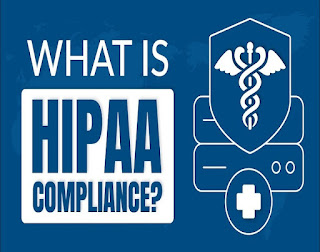The Importance of HIPAA Compliance in Healthcare: A Guide for Businesses
Navigating NIST compliance can be a daunting task, especially for small and medium-sized businesses. The National Institute of Standards and Technology (NIST) provides a comprehensive framework for managing and securing sensitive data. The framework covers a wide range of areas, including access control, risk management, and incident response. By implementing NIST compliance, businesses can ensure that their sensitive data is secure and their operations are running smoothly. However, navigating the complex requirements of NIST compliance can be challenging. That's why it's important to work with a knowledgeable team that can guide you through the process and help you achieve compliance. With the right support, NIST compliance can be a manageable and worthwhile endeavor for your business.
 |
| HIPAA Compliance |
HIPAA compliance is essential for any business that handles sensitive patient information in the healthcare industry. The Health Insurance Portability and Accountability Act (HIPAA) sets national standards for the privacy and security of protected health information (PHI). This includes patient records, medical histories, and other sensitive information. By complying with HIPAA regulations, healthcare businesses can ensure that patient information is kept confidential and secure. Failure to comply with HIPAA regulations can result in serious consequences, including hefty fines and damage to your business reputation. That's why it's crucial to have a strong understanding of HIPAA compliance and to work with experts who can help you maintain compliance in your healthcare business.



Comments
Post a Comment